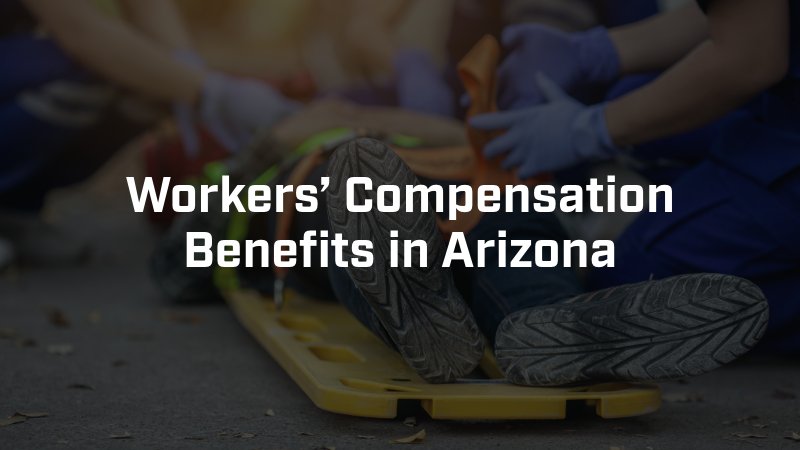Workers’ compensation benefits are typically available to Arizona workers who sustain on-the-job injuries or illnesses caused by the workplace. These benefits are in place to help cover medical costs associated with the injury or illness, a portion of lost wages, and various long-term benefits in cases of disability.

1. Medical Benefits
In Arizona, workers’ compensation covers all necessary and reasonable medical costs associated with a work-related injury or illness. This includes hospitalization, doctor visits, ongoing medical treatment, surgeries, medications, and medical devices. Injured workers are entitled to these benefits from the date of injury or diagnosis, emphasizing the importance of not delaying medical care to secure benefits.
Medical benefits will continue until an individual reaches what their doctor considers “maximum medical improvement,” or MEE. This is when a doctor determines that any additional medical care will unlikely improve the person’s condition any further.
2. Temporary Total Disability (TTD) Benefits
TTD benefits are crucial for workers who are unable to work due to their injuries, offering partial wage replacement during the recovery period. These benefits generally amount to two-thirds of the worker’s average monthly wage prior to the injury, up to a state-mandated maximum. This financial support can provide much-needed assistance in alleviating the strain on workers and their families during recovery. Typically, individuals in Arizona are able to start recovering compensation if they miss eight consecutive days of work.
3. Permanent Partial Disability Benefits
For workers who sustain permanent injuries that do not totally limit their ability to perform work duties, permanent partial disability (PPD) benefits are available. These benefits are calculated based on the severity of the impairment and its impact on the worker’s earning capacity, highlighting the need for expert evaluation and representation to navigate these complex cases. In Arizona, there are “scheduled” and “unscheduled” injuries. Scheduled injuries already have set amounts of compensation written into law for payment, and these include injuries to the hands, legs, arms, feet, or eyes.
4. Vocational Rehabilitation Benefits
Vocational rehabilitation benefits aim to assist workers who cannot return to their previous jobs due to their injuries but can work in a different capacity. These programs offer resources for retraining, education, and job placement assistance, providing a pathway for injured workers to regain the ability to find meaningful employment opportunities.
5. Death Benefits
In the tragic event of a workplace death, dependents are provided with death benefits, which can include coverage for funeral and burial expenses and a percentage of the deceased worker’s wages for a specified period. This support is critical for families dealing with the loss of a loved one due to a work-related injury or illness.
It’s important to note that Arizona’s workers’ compensation operates on a no-fault basis, meaning employees are entitled to benefits regardless of who caused the job-related injury or illness. Additionally, injured workers may also be entitled to benefits through a fault-based third-party liability claim if another party, besides their employer, is responsible for their injuries.
Speak to an Attorney for Help
If you have sustained an injury at work in Arizona but are currently struggling to receive the compensation you are entitled to, you may need to reach out to an attorney for help. An Phoenix workers’ compensation lawyer can offer a free consultation and help determine the best steps moving forward for your particular situation. If you deserve compensation, our injury lawyers in Phoenix want to help you obtain it.
